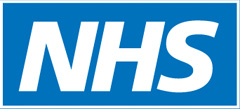The past few decades have seen huge advances in sexual and reproductive healthcare (SRH) – including better health promotion and wider access to services. This has contributed to an almost doubling of contraceptive use globally between 1970 and 2015 and a halving of teenage pregnancy rates in the UK alone in the past 20 years.

These changes have created a growing demand for specialist healthcare practitioners to provide advice on contraception, sexually transmitted infections (STIs) and other issues.
In this article, we turn the spotlight on an award-winning UK learning programme that is supporting the training and development of thousands of healthcare professionals.
The global picture
In 2015, the United Nations (UN) published the 2030 Sustainable Development Goals – setting out targets for governments worldwide on pressing global issues. Amongst these is a target to provide universal access to SRH across the world and enshrine this in national strategies and programmes.
“So, the importance of high-quality SRH is recognised and very much on the global agenda”, explains Jane Hatfield, Chief Executive of the UK Faculty of Sexual and Reproductive Healthcare.
“As demand for healthcare services in this area continues to grow, we will need increasing numbers of appropriately trained specialists and general practitioners over the coming years”, she says.
Award-winning elearning
Developed in the UK, the Sexual and Reproductive Healthcare programme (e-SRH) provides high-quality learning in this area.
Written by practising clinicians, the learning sessions cover a wide range of subjects, including contraception, STIs, psychosexual problems, family planning and legal issues relating to confidentiality and sexuality.
“e-SRH is suitable for doctors and nurses working in sexual health, general practice, obstetrics and gynaecology”, explains Aisling Baird, Clinical Lead for the e-SRH programme. “It is also invaluable for school nurses, pharmacists, health visitors and midwives – so it is a multi-disciplinary resource.”
“The learning content has been written by a multi-disciplinary team of clinical experts”, says Aisling. “Importantly, it is regularly reviewed and updated so the content reflects best practice and the latest clinical standards.”
This elearning has been developed by the UK Faculty of Sexual and Reproductive Healthcare (FSRH) – the largest UK professional membership organisation in the field, which produces clinical guidance, standards, training, qualifications and research into SRH.
Comprehensive content
For doctors and nurses, e-SRH covers the theoretical knowledge required for the initial part of the UK Diploma in Sexual and Reproductive Healthcare and the Letters of Competence in Subdermal Implants and Intrauterine Techniques.
Globally, e-SRH provides an excellent resource for healthcare professionals looking for a high-quality learning programme that covers all aspects of SRH. So, the subject matter is relevant regardless of the curriculum or programme of study. It can be used for training or as a refresher on key topics.
“e-SRH is the go-to learning package for doctors and nurses specialising in sexual and reproductive health”, explains Debbie Roberts, from the FSRH. “We encourage all healthcare professionals working in SRH to use this resource – even experienced clinicians.”
Interactive learning with a practical focus
e-SRH includes a wide range of interactive features, including photos, animations and videos.
“You can, for example, watch a short video showing how to insert and remove an intrauterine contraceptive device or see a clinical consultation with a doctor discussing contraception with a patient”, says Aisling. “These features help to put learning into a practical context and embed understanding on key themes.”

Using case studies, learners can also complete ‘virtual’ clinical consultations – where they are provided with medical histories before making an assessment. The outcome is provided at the end of each case study so the learner can reflect on their consultation.
Since the content is available online, learners can study at home, in work or even on the move. Progress can be tracked online and certificates of completion can be downloaded or printed off.
e-SRH has attracted a UK e-Government Award for Excellence in Learning and Skills. The judges praised the programme for helping to raise learning standards.
“e-SRH provides a great way to build your knowledge and understanding in this area. This is particularly important as SRH often doesn’t have the same focus in the training programmes of many other specialties or in the undergraduate curriculum”, says Aisling.
“Furthermore, sexual health is still a subject that many service users, and even some healthcare professionals, feel uncomfortable talking about”, she adds. “e-SRH is designed to give practitioners the tools they need to initiate these conversations on challenging and often very personal issues.”
Wide-ranging global applications
e-SRH has obvious applications for healthcare professionals globally. It could, for example, provide a valuable learning tool in low-income countries, particularly geographically remote areas where access to high-quality, face-to-face training may be limited.
“Clearly, there are cultural differences and variations in clinical practice around the world. However, the overall clinical themes in e-SRH are universally relevant”, explains Aisling.
Study online, 24/7
Despite the huge advances in the provision of SRH over the past few years, there is still room for improvement in many areas.

“According to the UN’s research, at least one in ten married or in-union women in most regions of the world has an unmet need for family planning, that is, they would like to stop or delay childbearing but are not using any method of contraception”, explains Paula Baraitser, Chair, FSRH International Committee.
“The number of women in this group using contraception is expected to increase by 20 million to 778 million in 2030, mainly in Sub-Saharan Africa and Oceania[3].
“This implies the need for increased numbers of contraceptive providers working in these regions, all of whom will require training in contraceptive counselling and the safe provision of all modern contraceptive methods”, says Paula.
“Online training can provide a low-cost and accessible strategy to deliver this training without compromising service provision by withdrawing health professionals from their clinical practice”, she concludes.
So, e-SRH gives healthcare professionals the chance to study at their own pace – whenever and whenever they choose. Learners benefit from the UK’s investment in high-quality learning, which can only have a positive impact on SRH provision worldwide.
For further information about e-SRH, and for details of the cost, please go to our sexual and reproductive healthcare programme page.



